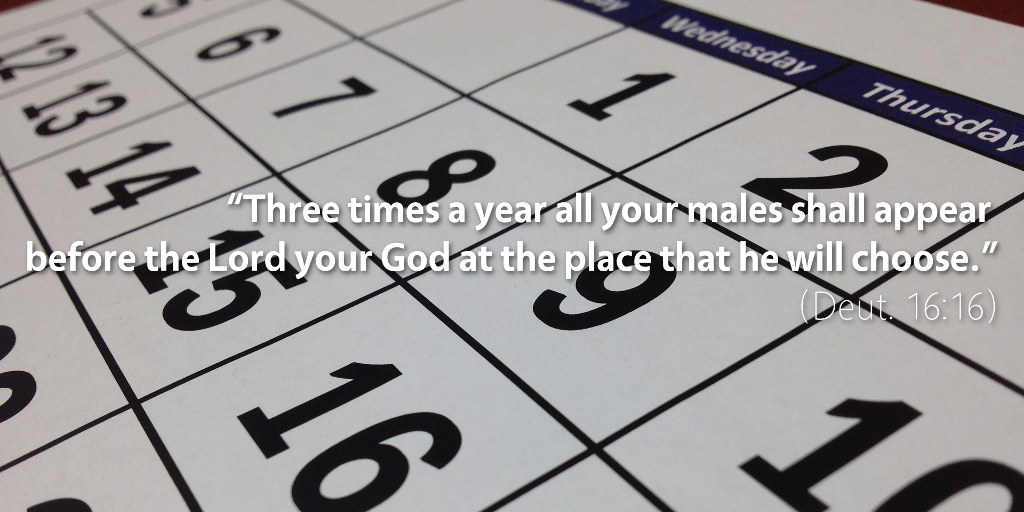Bible Readings for June 11th
Deuteronomy 16 | Psalm 103 | Isaiah 43 | Revelation 13
In Deuteronomy 16, Moses names the three festivals that all Israelite males were expected to attend: Passover, the Feast of Weeks (Pentecost), and the Feast of Booths. As we saw in our meditation on Deuteronomy 14, the people who lived too far away to travel to the place where Yahweh chose were granted an exception, but for the most part traveling to the three festivals was a regular part of what it meant to be a part of Yahweh’s covenant people.
Technically, these aren’t the only feasts Israel observed. Back in Leviticus 23, Yahweh commands that Israel also observe the Feast of Unleavened Bread (Lev. 23:6), the Feast of Firstfruits (Lev. 23:9–14), the Feast of Trumpets (Lev. 23:23–25), and the Day of Atonement (Lev. 23:26–32). These other festivals, however, were all connected to one of the three main festivals.
Through this calendar, Yahweh was structuring both the time and the space of his people. These festivals shaped the passage of time for Israel in a deeper way than even the academic calendar or sports seasons or “the holidays” shape our own lives. They were highly anticipated events filled with worship and sacrifice and singing—the high points of the whole year.
But notice also the insistence that the people should come to “the place that the LORD will choose, to make his name dwell there” (Deut. 16:2; cf. Deut. 16:6, 11, 15, 16)—that is, to establish a permanent tabernacle for his presence there. This isn’t the first chapter in which we have seen a growing emphasis on the place of Yahweh’s choosing. Beginning in Deuteronomy 12, Moses has begun to repeat regularly that Yahweh would eventually make for himself a permanent dwelling place for his name (Deut. 12:11, 14, 18, 21, 26; 14:23, 24, 25; 15:20). The roaming tabernacle was an important first step in establishing God’s presence with his people, but it wasn’t sufficient.
Eventually, Yahweh would set a more permanent temple in Jerusalem and fill the temple with his glory (1 Kings 8:10–11). Still, even Solomon’s temple wasn’t entirely permanent. After Judah fell into greater and greater sin, the prophet Ezekiel saw a vision of Yahweh’s glory departing from the temple (Ezek. 10; 11:14–25), and we never read anything suggesting that Yahweh’s glory ever returned.
Instead, we read in the New Testament about the man who dwelt (lit. “tabernacled”; John 1:14) among us, who claimed that his body was the temple (John 2:19–22). Then, we read that we are God’s temple (1 Cor. 3:16–17), built up as a dwelling place for God’s Spirit (Eph. 2:19–22). Week by week, as we gather together in the name of Jesus on the Lord’s Day, we are the collective dwelling place of God. “Therefore let us celebrate the festival!” (1 Cor. 5:8).
Podcast: Play in new window | Download (5.4MB) | Embed
Subscribe: Apple Podcasts | RSS | More

Scripture quotations are from The Holy Bible, English Standard Version copyright © 2001 by Crossway Bibles, a division of Good News Publishers. Used by permission. All rights reserved.


